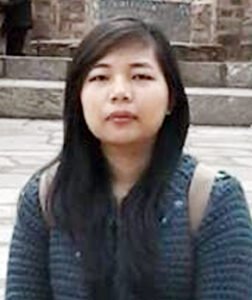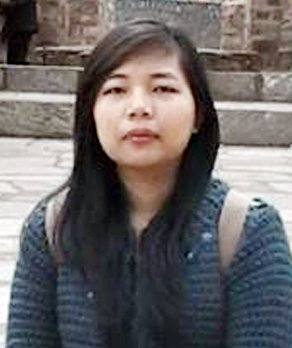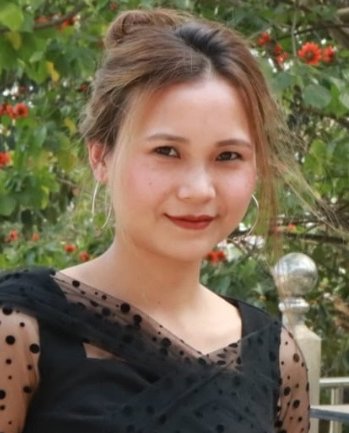

Abstract: This paper is an attempt to highlight the evolution of feminism and its facets through select Mizo fiction. Further, it is also a study of the status of women in the past and modern in Mizo society. In the select novel Zawlpala Thlan Tlangah by Khawlkungi, women are subjected to bow under the commands of men, where women have no voices in household and domestic affairs. Men believe that women are inferior beings who should abide by their will and that if women do not dare to fight for their rights they will never be free from the tyranny of men. It also studies the partial nature of judgement given to men and women on equal offence.
Introduction
Since time immemorial the suppression of women and the belief that they are inferior beings have held sway in almost every corner of the world. Most of the societies in this world are patriarchal and so, social, religious and state affairs are mostly stratified through the ideology of patriarchy. With this in view, women believed that they had to fight for their rightful place and that they had abilities that were on par with men so started a movement to fight for equality, thus Feminism was born. Feminism started way before 1960. Mary Wollstonecraft’s A Vindication of the Rights of Women (1792) and later Virginia Woolf’s A Room of One’s Own (1929) had a deep impact on feminism. In her book, Woolf wrote that men and women were treated differently. She wrote, “A woman must have money and a room of her own if she is to write fiction,” (7) pointing out the need for freedom, a room of her own for women to write a novel. Woolf was overwhelmed with anger by the writing of a Professor ‘The Mental, Moral, and Physical Inferiority of the Female Sex’ and she exclaimed, “My heart had leapt. My cheeks had burnt, I had flushed with anger” (32). In 1949 Simone de Beauvoir released The Second Sex (1949) which elaborates the status of women in society and how women were subjected to the will of men in society. By this, we can see that women had long raised their voices regarding inequality, partiality and how they were treated to be inferior to men.
Definition of Feminism
The term Feminism originated in 1880 from the journal of a French named Hunbertine Auclert in her journal La Citoyenne as la Feminite. In this journal, she wrote against the suppression of women by men. She also wrote that through the French Revolution, women would gain freedom from the tyranny of men. Among the English, the term Feminism began to take hold in Britain in the twentieth century, and the same started in America from the year 1910. The word ‘feminism’ is derived from the Latin word ‘femina’ meaning ‘women’s issues’. Many scholars have tried to explain the word feminism, but many of their conclusions differ. According to Merriam-Webster feminism is “the belief that women and men should have equal rights and opportunities” (159). According to Amina Ghorfati and Rabha Medini, “Women were able to spread it all over the world, make it a symbol of equality, and make all people believe that men and women deserve equality in all opportunities, treatment respect and social rights,”(16). RajivaRanjan also noted that “Feminism is a noble concept against ignoble thought of discrimination on the grounds of sex” (120). Feminism believes that women have equal rights, responsibilities and opportunities with men. This is how Nagarajan defined the two basic reasons for the birth and growth of feminism:- “gender difference is the foundation of structural inequality between men and women by which women suffer sympathetic social injustice” and “the inequality between the sexes is not the result of biological necessity, but is produced by cultural construction of gender differences” (206). These thoughts had a huge impact on the movement of feminism.
In short, feminism is against the discrimination of women and the belief that they are inferior compared to men. It is also the belief that women have equal rights with men in matters relating to politics, religion and the pursuit of higher education. It is against the tyranny of men that suppresses the rights of women and the rules and regulations in society that go only with the will of men. So, the belief that women have a say in society as a whole led to the birth of the ‘Women Movement’. Feminism is characterized into different waves namely, First Wave Feminism, Second Wave Feminism, Third Wave Feminism and Fourth Wave feminism. However, the paper will not elaborate on these different waves.
Some Facets of Status of Mizo Women
Looking back on the history of traditional Mizo society, Mizo women barely had spare time for themselves throughout their lives. They were always busy with chores from dusk till dawn. They had to manually pulverise rice every early morning, they had to fetch water and cook for the family. After that, they had to go to their jhum to work their crops. And when they went home after work they had to continue their household chores at home cooking, feeding their domestic animals etc. At night they were busy with spinning weaving and cooking for their domestic animals until they went to bed. Even if they had an off day from their jhum works, they were either busy collecting firewood or weaving. In Mizo society men and women strictly have different chores. Besides sickness, men never necessarily indulge themselves in domestic chores. It is considered out of the ordinary for a man to do household chores even if he is free when women need help with their chores. According to James Dokhuma, “They looked down on women so much that the voice of women is not even considered a voice, and the Mizo saying, ‘Crab meat is no meat at all, as such the word of a woman is no voice at all’ proves it all” (269). It is clear from this statement that Mizo women were suppressed even in the early Mizo society.
Since early history, Mizo women were burdened with household chores as well as jhum cultivation. Apart from these, they had to look after their children and were caretakers of the whole family in sickness and health. Besides chores and work, they had to think for the whole family, so even their minds would have been under stress at all times. Considering everything, they still lived under the will of their husbands and fathers, if they were not backed up by the male members of the family their burdens just got heavier. But according to Thanpuii Pa, “Mizo women who used to live under the tyranny of men had gained their freedom, they misused their freedom and tried and almost every possible way and almost succeeded to put men under their will”(67). Even though the status of women developed in various ways, there are still many miles to go especially proper legal status for women in matters relating to heirship, ordination of elders and pastors in the Church community and there is still a huge gap between men and women. Even in politics, if there is no reservation for women and are still considered incapable of leading the nation or the state.
A View from Khawlkungi’s Novel:
Zawlpala Thlan Tlangah (1977) is one of the remarkable novels of Khawlkungi and the main heroine Vanlalremi plays an important role in the novel. In this novel, when Remi comes of age she begins working the jhum as well as all the household chores, she does not have time and opportunity to pursue higher education. Due to the untimely demise of her mother, she lived with her father alone. Unfortunately, in no time her father passed away so she had to live with her aunt, her father’s sister. Vanlalremi’s aunt’s husband was a drunkard who loved to boss around the house.” Seizing the opportunity of Remi living with them. Besides this, Mr Rochhinga has widened their jhum, which resulted in heavier work that burdens Vanlalremi. And the head of the household being a drunkard often failed to help and work with them” (Khawlkungi15). This has revealed the burden of Remi and Rochhinga’s character and attitudes towards Remi. Rochhinga even arranged for Remi’s marriage to Muana without obtaining her consent. But Remi refused to marry a drunkard so she got into more trouble. It also talks about Remi finding her true lover after moving to Aizawl to learn the art of tailoring. From this novel, it is evident that we learn the status of women under the rule of men and how hard they had to fight for their rights in society.
Undoubtedly, Zawlpala Thlan Tlang reflects how women bow under the laws of men and the patriarchy of the Mizo society. Remi’s father passed away a short while after her mother’s death. So having no one else she had to live with her paternal aunt. But her aunt’s husband was dominating in the house and his wife did not dare to have a voice in the house. Her aunt’s daughter Tluangi exclaimed, “Do you think my mother would dare to question him? Even if she utters a single word of grievance, he would beat her black and blue. I don’t think she will say anything”(3) acknowledging her mother’s status in the house. This proves that women lived under the dominance of men, so much so that it was not only that they dared not raise their voice but Remi’s mother was even a victim of domestic violence.
Mr. Rochhinga looked down on women so much that he not only exploited them for work, he even tried to have autonomous power over their will. “Seizing the opportunity of Remi living with them, Mr. Rochhinga widened their agricultural lands, which results in heavier work that burdens Remi. And the head of the household being a drunkard often failed to help and work with them” (15) clearly shows Rochhinga’s intention of exploiting Remi. In the 19th Century, women in the United States were denied their freedom to work away from home, they were only permitted household chores. Leeanne Gelletly said, “Men’s and women’s lives were supposed to take place in separate spheres. A man’s place was the public sphere. He engaged in business and politics. A women’s place was in the domestic, or private sphere. She was to care for home, children, and her husband” (10). On the other hand, Mizo women have the freedom to work, both at home and away from home. But this only burdened them with multiple chores. Hence, the hardship that both the US and Mizo women faced was not the same side of the coin. And yet they did not have entitlement and voice in their household. Khawlkungi clearly states this fact in her novel.
Rochhinga tried to force Remi to marry Lalmuana, son of the the village elder. The reason for this is that Lalmuana agreed to give him a double-barrelled shotgun as part of the marriage payment. Lalmuana believed that he could marry any girl his heart desired even if he did not have her consent. He did not care if the girl was willing to marry him or not. So Lalmuana said, “I’ve already made an agreement with your uncle Rova” (Khawlkungi21) openly condescending to Remi. But Remi is adamant about this and she replies, “You cannot go through with this without my consent, especially with a good-for-nothing like you” (21). Lalmuana even tried to force Remi into sex. But Remi fought him back bravely and he was unsuccessful in his attempt. Remi also bravely oppose her uncle Rova and says, “Uncle, please forgive me if I have wronged you in any way, but I am only 17 and I am too young and I am not ready for marriage” (24). Rochhinga demanded proudly showing his dominance, “As long as you live under the roof of my house, you will have to obey me without questions”(24). This shows the true colour of man, his attempt to rule over women and to control them as he pleases. Lalnghakṭhuami explained, “As we all know, women in Mizoram live under the dominion of men and abide by the rule of patriarchy. So, most of our thoughts, beliefs and lifestyles go by the law of patriarchy,”(Lalneihzovi and Vanlaltlani 9) and this was depicted in this novel.
Most women dared not question men in the society, and among them was Remi’s aunt. She could not even decide right or wrong when it was her husband giving the words, she just kept quiet and bore everything without question because she did not dare to fight for her rights. But Remi on the other hand did not approve of men who tried to order women around as if they were assets, she could not stand men who tried to control women against their will so she fought against it. She did not stay put or silent, instead, she openly rejected her suitor Lalmuana and showed how wrong it was to do things without her consent. She even gave her uncle a piece of her mind to honour her rights. Remi also leaves her aunt’s place to free herself from her uncle’s tyranny, “So she left her little village and passes through narrow passages until she reaches the main road, she glance her village one last time. The sun almost sets on the horizon so she hurried on the main road,” (Khawlkungi 29). She did not know which road to take yet she left home to defend her rights as a woman. She left her aunt’s place to pursue her freedom.
When she meets Malsawma in the place where she ran away he says to her, “You are an unmarried girl, I don’t think it is right to run away and wander around for a girl,”(40) and so he persuaded Remi to go back to her aunt’s. But Remi told him her whole problem saying, “He desperately fancied having a gun, and the guy who proposed promised him a double-barreled shotgun as a wedding payment, he will try his best to have that gun. When I told him that I disagreed with him, he threw me to the ground and kicked me mercilessly. I have no other choice but to run away,”(41) telling that she had no intention of going back. Zohmangaihi also said, “We girls should be brave like Martha while expressing what we believe, to be brave to question our status and importance, let’s take down our old customs and traditions that chained us and start working with complete freedom,” (18-19) inspiring women and encouraging them to be brave in order to attain their freedom. This is how cowards like Remi’s aunt who did not have the guts to fight the tyranny of her husband ended up.
Even if her husband was born again and left all his bad characters, she believed that it would not benefit her and wouldn’t do her much good. It was too late and everything had already fallen apart, her daughter had died leaving her with a baby which became her burden, and she had to work hard to look after the baby. She has nothing to say anymore, but she only hopes that her husband will find spiritual peace. (145)
Her aunt’s condition was really weary and miserable. Khawlkungi did not generally express her thoughts on the equality of men and women in her novel. But, through Vanlalremi she expresses how women needed freedom, freedom to marry for love and that they have a right to choose just as men do. It shows how women had to fight for these rights.
In this novel, Zawlpala Thlan Tlangah, Khawlkungi depicted the nature of Mizo society and the tyrannical mindset of men over women. Remi’s uncle ordered her saying, “You will have to comply with Sawma at all costs, men are stronger and greater than women in every aspect of life, so women must respect men, it is also the will of God”(70). Khawlkungi defined the mindset of men through this. It showed how Rochhinga tried to convince Remi that men were superior and greater than women. Two major women characters in this story were Lalkhawthangi and Vanlalremi. “Comparing Remi’s personality with Lalkhawthangi’s personality and nature, they were really different. If they were the head mother of a family, which one would be better?”(65), “The good nature and kindness of Remi made him unsure, but if he doesn’t tell her his true feelings soon, he might be too late. He had a feeling that he had to man up to do what needed” (67) shows the status of Vanlalremi from a man’s point of view.
This was how men and the Mizo society considered and regarded women.
Men usually tried to force girls into sex before they came of age, they did not care whether they were willing or not. And if they succeeded they despised them as if they were whores. This clearly showed how they looked down upon women and how lowly they thought of them. Lalmuana tried to force Remi into sex but she somehow managed to escape from him. Lalkhawthangi had sex with Vanthanga before marriage. “Even though Lali was a flirt, the thought of sex never came to her mind, so she was terrified when she was grabbed by a guy, so she tried to shout for help… but Lali failed to see the cruelty behind the tears of Vanthanga, so she felt sorry for the guy who longed for her and gave herself in. She failed to see that the guy who will despise her later was the one she thought to be her true lover” (74). This was at first an attempt to deflower a girl by force, and later by deceit, he succeeded in having sex with her and then goes on having intercourse with her until she was finally with child. And then he refused to marry her.
The victim Lalkhawthangi was abhorred in this situation, she received harsh punishments from her brother. Lalkhawthangi did not lay the blame on Malsawma for being the father of her baby, it was her parents that blamed him responsible. So sayeth their church elder, “We all knew the nature and character of Lalkhawthangi if she often comes to your house her family members are understandable in accusing you to be the father of the baby,”(101) showing how Thangi was faulted by the society. This shows how low the status of women was in society. “She began to think of how lowly women were considered in society, how cheap they can suddenly become only by a single mistake, and how they will never be able to choose even someone they considered their own status due to that mistake,” as shown(214). This shows that between men and women, men are always favoured even when it is their fault and are to blame. This shows the inequality of men and women in society.
Conclusion:
Women were subjected to the tyranny of men, sometimes men used physical force to keep women under their command. This can be seen from the novel Zawlpala Thlan Tlangah that most women bore it all because they were afraid to utter a word against it. Men and the Mizo society as a whole had a rule for women, they should always respect men and must always maintain a good character. Besides all these, men always look for an opportunity to defile and defame them. If they succeeded in having sexual intercourse with a girl, they began to despise them from that moment forth. Lalkhawthangi, too, was deceitful by Vanthanga, but in the end, she took all the blame. From this story, we can see how women were subjected to live under the suppression of men, how they had no authority in and around the house, how they were treated unequally when it came to judging them for equal mistakes and how lowly women were treated in the whole society. We also see how men act as an owner of women and marry them off as they pleases, but we also see how Vanlalremi fought against this tyranny and her journey towards her freedom.
Works Cited
- Dokhuma, James. Hmanlai Mizo Nunphung. Gilzom Offset, A 54 Electric Veng, Aizawl: Mizoram, 2011.
- Gelletly, Leeanne. Finding a Voice: Women’s Fight for Equality in U.S. Society. Mason Crest, 2013.
- Ghorfati, Amina., and Medini, Rabha. Feminism and its Impact on Women in the Modern Society. Popular and Democratic Republic of Algeria Ministry of Higher Education of Scientific Research, University of Tlemchen, Academic Year 2014-2015.
- Khawlkungi. Zawlpala Thlan Tlangah. Exodus Press Tuikhuahtlang, Aizawl, 2001.
- Lalneihzovi and Vanlaltlani T, editors. Hmeichhiate Lamtluang. All Mizoram Women Federation, 2013.
- Malsawma, J (Thanpuii Pa). Zo-Zia. Thanpuii and Gilzom Offset Press, A 54, Electric Veng, Aizawl, 2001.
- Nagarajan M.S. English Literary Criticism and Theory. Orient Blackswan Private Limited 2014.
- Ranjan, Rajiva. “Understanding Feminism.” International Journal of English Language, Literature and Translation Studies, Vol.6. Issue.4. 2019 (Oct-Dec), pp. 120-122.
- Webster, Merriam. Webster Dictionary for Students. Federal Street Press, A Division of Merriam-Webster, Incorporated, 2015.
- Woolf, Virginia. A Room of One’s Own. Maple Press Private Limited, 2020.
Cite the original source:
Lalzarzovi and Dr. Zoramdinthara. “Voices of Women in Khawlkungi’s Novel Zawlpala Thlan Tlangah.” Mizo Studies, X, no. 3, Sept. 2021, pp. 397–407.
![]()







